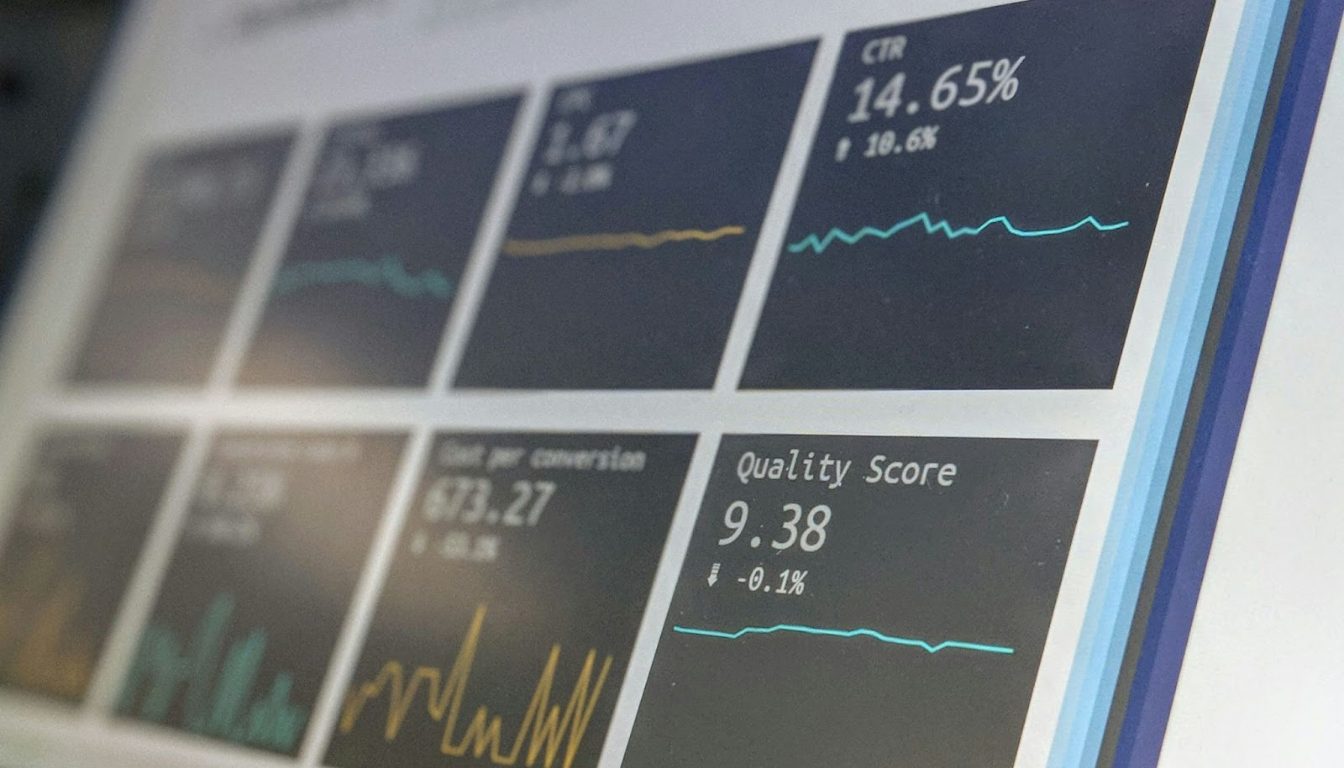Mastering Post Event Analysis: Essential Tips for Measuring Event Success

Post event analysis evaluates the success of an event such as corporate retreats by measuring key performance metrics and identifying areas for improvement. This article covers what post event analysis is, its importance, and how to carry it out effectively.
Key Takeaways
- Post-event analysis is essential for measuring event performance, ROI, and identifying areas for improvement, guiding future event planning.
- A comprehensive post-event report should include financial performance, attendee feedback, and assessment of marketing effectiveness and logistics.
- Leveraging technology, such as event management software and data collection tools, enhances the accuracy and efficiency of post-event analysis.
Understanding Post Event Analysis for Corporate Retreats

Post-event analysis is a critical component of managing corporate retreats, focusing on evaluating the retreat’s effectiveness, engagement levels, and return on investment (ROI). This process provides measurable insights into what worked well and where improvements are needed, including logistics, team dynamics, program content, and alignment with strategic goals. A thorough analysis not only validates the retreat’s value but also informs actionable steps for enhancing future retreats and maximizing long-term organizational benefits.
Definition and Purpose
At its core, post-event analysis aims to measure event ROI and identify areas for enhancement. It involves summarizing the event’s goals, results, and evaluations in a post-event report, reflecting on successes, challenges, and lessons learned.
This process is essential for improving future event planning and ensuring that event goals are met.
Key Benefits
Conducting thorough post-event analysis delivers critical insights that optimize resource allocation for future events such as team offsites and retreats. By collecting and analyzing event data, such as attendance numbers, financial records, and participant feedback, organizations can enhance their event strategies and planning processes.
These insights not only highlight the Event’s successes and areas for improvement but also provide a roadmap for achieving future success.
Essential Components of a Post Event Report

A well-structured good post event report writing is essential for capturing the comprehensive performance of an event. It should include key metrics to assess success, such as:
- Financial performance
- Attendee feedback
- Marketing effectiveness
- Logistics
- Effective post event report
Customizing the report format can enhance engagement and understanding among diverse stakeholders.
Executive Summary
The executive summary offers a high-level overview of the corporate retreat, emphasizing key outcomes, strategic insights, and overall effectiveness. It should be concise—generally one to two paragraphs—and clearly present the retreat’s objectives, major highlights such as team engagement, leadership alignment, or milestone achievements, and significant takeaways that reflect its impact. This section plays a crucial role in communicating the retreat’s value to stakeholders and lays the foundation for the more detailed analysis that follows.
Financial Performance
Financial performance is a key component of the post-event analysis for a corporate retreat, offering a clear view of the event’s fiscal impact and cost-effectiveness. This section should provide a detailed breakdown of all income sources and expenditures, including sponsorship contributions, departmental allocations, vendor costs, venue expenses, travel and accommodation, and any ancillary services. By analyzing net expenditures versus budgeted projections, as well as identifying cost drivers and potential inefficiencies, this analysis supports accountability and informs better financial planning for future retreats.
Attendee Feedback
Collecting attendee feedback is essential to evaluating the impact of a corporate retreat and identifying areas for enhancement. Feedback mechanisms such as post-retreat surveys, direct stakeholder input, and engagement observed through internal platforms or informal channels provide valuable insights into participant satisfaction, perceived value, and overall experience. This data helps measure how well the retreat met its objectives—such as team cohesion, leadership alignment, or strategic planning—and informs targeted improvements to maximize effectiveness and engagement in future retreats.
Marketing Effectiveness
Evaluating the effectiveness of marketing and communications for a corporate retreat involves analyzing the performance of each promotional channel used to drive awareness, engagement, and attendance. This includes reviewing social media analytics, internal communication engagement (such as email open rates or intranet interactions), registration trends, and attendee feedback on pre-event messaging. These metrics help determine the reach and resonance of marketing efforts, highlight which channels were most effective, and reveal areas needing improvement. This evaluation is essential for refining future outreach strategies, improving audience targeting, and enhancing overall participation and alignment with retreat objectives.
Logistics and Operations
Logistics and operations play a significant role in the overall success of an event. The post-event report should review key event logistics aspects, such as:
- Venue selection
- Transportation
- Technology requirements
- Any challenges faced.
Effective management of these elements ensures operational efficiency and improves attendee experiences, leading to more successful future events.
Tools and Techniques for Effective Data Collection
Effective data collection is vital for post-event analysis. Utilizing event management software, post-event surveys, and social media engagement tools can streamline the data collection process and enhance the accuracy of the insights gathered.
These tools enable event organizers to monitor attendee interactions in real-time, aiding in immediate data assessment and future event planning.
Event Management Software
Event management software integrates registration, ticketing, and attendee tracking, making data collection more efficient. These platforms automate the collection of participant data and ensure accurate event reporting.
Establishing a comprehensive checklist of essential metrics can further enhance the effectiveness of data collection.
Post Event Surveys
Post-event surveys are a valuable tool for collecting feedback from attendees. It captures structured feedback from participants, offering direct insight into the retreat’s effectiveness and overall experience. Utilizing online survey platforms allows for efficient distribution, real-time data collection, and streamlined analysis. Customizable questions—ranging from logistical satisfaction to content relevance and perceived outcomes—enable organizations to gather both quantitative metrics and qualitative input. The resulting data is essential for identifying strengths, addressing shortcomings, and ensuring that employee perspectives inform the planning and execution of future retreats.
Social Media Engagement
Social media engagement provides real-time feedback on attendee perceptions and event success. Tracking engagement metrics, such as shares, likes, and comments, offers valuable insights into attendee preferences and the reach of the event.
Utilizing hashtags and social media analytics tools can enhance the understanding of audience engagement and inform future event planning.
Measuring Event ROI

Measuring event ROI is critical for understanding the financial and strategic impact of an event. This process involves calculating the return on investment by comparing event revenue with event expenses.
Accurately measuring the return on investment (ROI) of a corporate retreat is essential for justifying expenses and shaping data-driven strategies for future events. A thorough ROI analysis evaluates both tangible and intangible outcomes—such as cost-efficiency, employee engagement, and strategic alignment—against the retreat’s objectives. By systematically tracking ROI, organizations gain deeper insights into what drives value, enabling them to refine event design, optimize marketing efforts, and maximize the overall impact of future retreats.
ROI Formula
Calculate event ROI using the formula ROI = Event Revenue / Event Expenses. This equation measures event profit and efficiency, and using an event ROI template can help streamline the process. The ROI percentage shows how effectively returns were generated relative to costs, helping companies understand financial success.
Incremental Revenue Model
The incremental revenue model evaluates the profitability of a corporate retreat or event by comparing the revenue generated against total event expenses, using gross margin as a key indicator. ROI is calculated using the formula:
ROI = (Event Revenue – Event Expenses) / Event Expenses.
This model goes beyond simply measuring revenue by factoring in the actual margin retained after covering costs, offering a more accurate and insightful view of financial performance. By emphasizing profitability rather than just top-line income, this approach helps decision-makers assess the true economic impact of the event and supports more informed budgeting and planning for future initiatives.
Customer Lifetime Value (CLTV) Integration
Integrating Customer Lifetime Value (CLTV) into ROI calculations reveals long-term financial benefits of attendee engagement. This approach helps planners understand the extended value of customer relationships and how events contribute to business success.
Leveraging Event Technology for Analysis

Event technology simplifies collecting and analyzing participant data in post-event analysis. Using predictive analytics and AI uncovers critical performance indicators and trends, aiding in optimizing future events and resource allocation.
Event Apps
Event apps significantly enhance the attendee experience at corporate retreats by facilitating real-time engagement, feedback, and interaction tracking. Features such as live polls, Q&A sessions, personalized agendas, and networking tools allow participants to stay informed and actively involved, while giving organizers immediate access to behavioral data and participant preferences. This real-time insight supports on-the-spot adjustments when applicable and provides valuable input for improving the design, content, and delivery of future events—ultimately strengthening the retreat’s overall impact and alignment with organizational goals.
CRM Integration
Integrating Customer Relationship Management (CRM) systems with event management tools enables more effective tracking and management of attendee relationships, particularly with clients, partners, or key stakeholders involved in corporate retreats or events. This integration centralizes data on participant interactions, preferences, and engagement history, allowing organizers to personalize communications, tailor content, and strengthen long-term relationship strategies. It also enhances post-event analysis by linking attendee behavior to broader business outcomes, supporting better-informed decisions and driving greater strategic value from future events.
Presenting Your Post Event Report

Presenting a post-event report requires maintaining objectivity and clarity. A well-structured report helps stakeholders navigate insights easily, while avoiding unnecessary repetition ensures that the information presented is concise and impactful.
Incorporating key stakeholders feedback is essential to avoid misinterpretations of outcomes.
Visual Aids
Using visual aids like charts, graphs, and infographics effectively conveys data and trends in a post-event report. These visuals enhance audience comprehension and make complex information accessible, helping stakeholders identify areas for improvement and celebrate successes.
Tailoring Reports for Stakeholders
Tailoring report sections for different stakeholders makes the report more engaging and relevant. Customizing insights based on the audience enhances persuasion and actionability, ensuring each stakeholder receives pertinent information.
Common Challenges and Solutions in Post Event Analysis
Post-event analysis presents challenges like collecting reliable data and ensuring timely reporting. Addressing these is crucial for compiling effective post event reports and improving future events. Engaging stakeholders and maintaining thorough data collection are key to overcoming these obstacles.
Data Reliability
Reliable data is crucial for informed decisions based on event outcomes. Using event management tools enhances the precision of collected data, ensuring accurate, actionable insights. This reliability forms the foundation of a good report and informs future strategies.
Timely Reporting
Timely reporting is vital in post-event analysis as it prevents the loss of critical information and enhances decision-making effectiveness. Delays in compiling reports can lead to the omission of important details, which are crucial for future event planning and media coverage.
To avoid such delays, plan and allocate responsibilities for data collection in advance, ensuring that the report generation process is efficient and prompt.
Future Event Planning Based on Analysis
Leveraging insights from post-event analysis is crucial for successful future planning. Key aspects include:
- Combining qualitative and quantitative data to enhance event insight quality.
- Using post-event surveys and diverse data collection methods to provide actionable feedback.
- Shaping future strategies based on feedback for continuous improvement and better attendee experiences.
Setting SMART Goals
Defining event goals using the SMART criteria (Specific, Measurable, Achievable, Relevant, Time-bound) enhances clarity and focus in achieving desired outcomes for corporate retreats and events. A well-structured post-event report aids organizers and corporate retreat planners in planning future events and showcases how the event achieved success to stakeholders.
Insights from event analytics help optimize future events and allocate resources effectively, leading to more successful outcomes while considering the event’s impact.
Optimizing Resource Allocation
Feedback from past events is crucial for identifying specific areas needing improvement and enhancing future event strategies. Optimizing resource allocation based on post-event analysis ensures that resources are used efficiently, maximizing event ROI.
This approach helps planners address any shortcomings from previous events and make informed decisions to improve future events for future event planning.
Summary
Mastering post-event analysis is essential for measuring event success and maximizing ROI. By understanding the key components of a post-event report, utilizing effective data collection tools, and leveraging technology for analysis, organizers can gain valuable insights that inform future event planning. Setting SMART goals and optimizing resource allocation based on analysis ensures continuous improvement and successful outcomes for future events. Armed with these strategies—and with support from specialized platforms like Offsite, which streamline corporate retreat planning and data integration—you can transform your events into powerful, data-driven successes.
FAQs
- What is the basic formula for calculating event ROI?
To calculate event ROI, use the formula ROI = Event Revenue / Event Expenses. This straightforward calculation helps you assess the financial effectiveness of your event.
- Why is timely reporting important in post-event analysis?
Timely reporting is crucial in post-event analysis as it preserves vital information and significantly improves decision-making effectiveness. Ensuring that data is reported promptly allows organizations to respond quickly and adapt strategies as needed.
- How can post-event surveys improve future events?
Post-event surveys are essential for gathering actionable feedback, which directly informs improvements in future event planning and enhances attendee experiences. This iterative process leads to more successful and engaging events over time.
- What role do event apps play in post-event analysis?
Event apps are crucial for post-event analysis as they facilitate real-time feedback and track attendee interactions, allowing organizers to evaluate engagement and overall success effectively.
You may also like
Unique spaces for your next offsite
Find distinctive venues for your upcoming corporate retreat.
Stay Updated with Our Insights
Get exclusive content and valuable updates directly to you.







